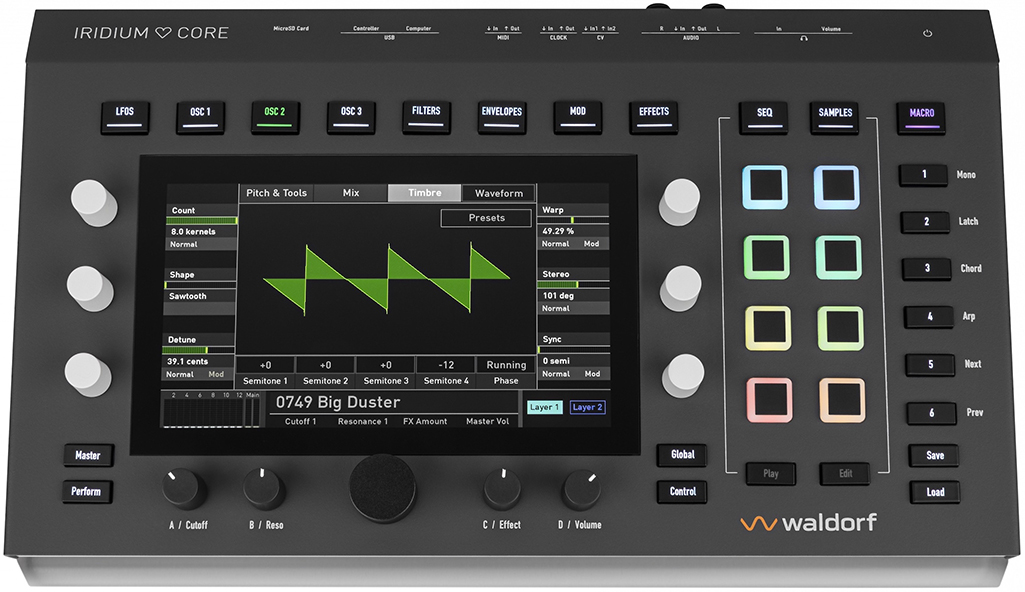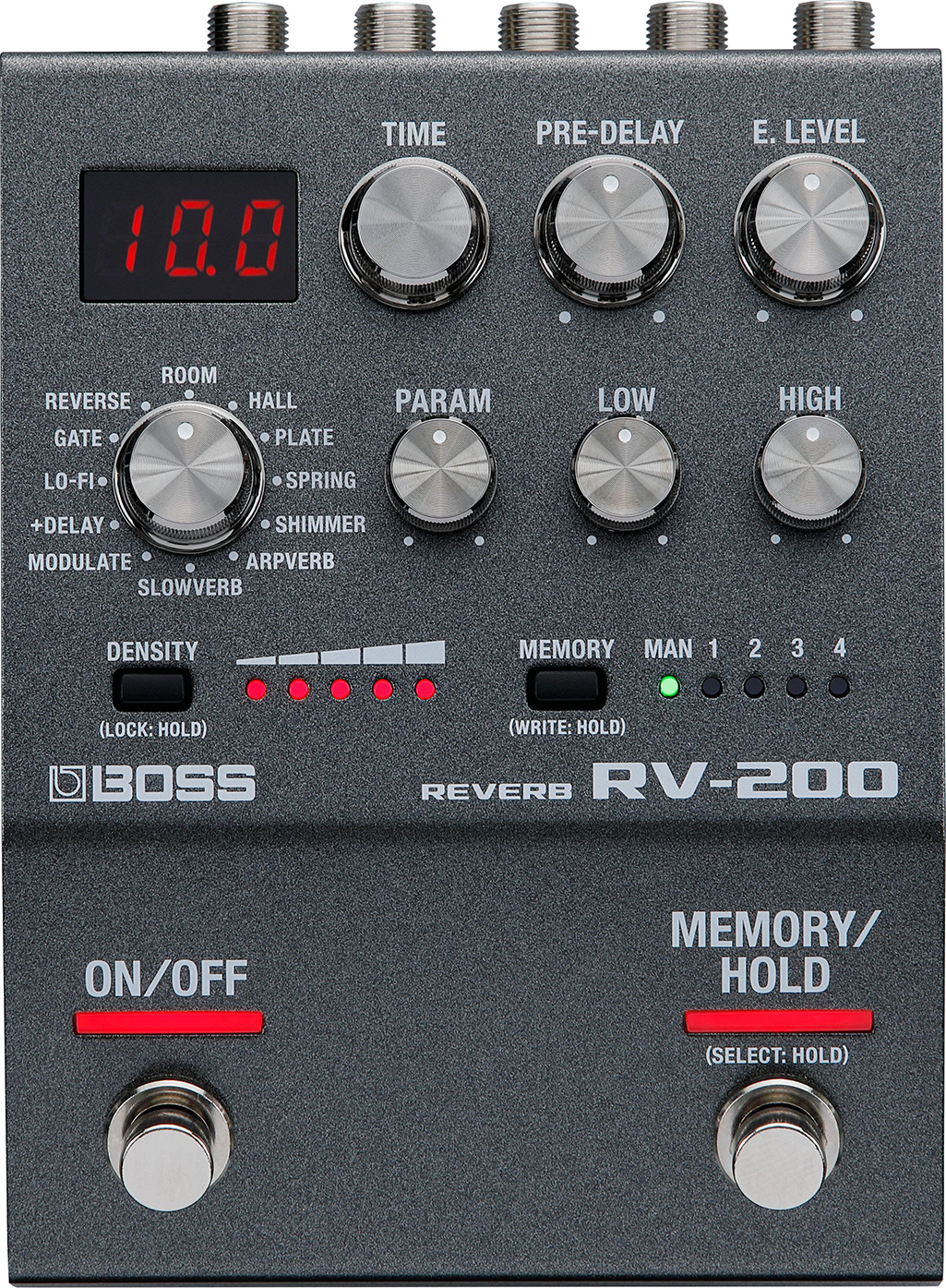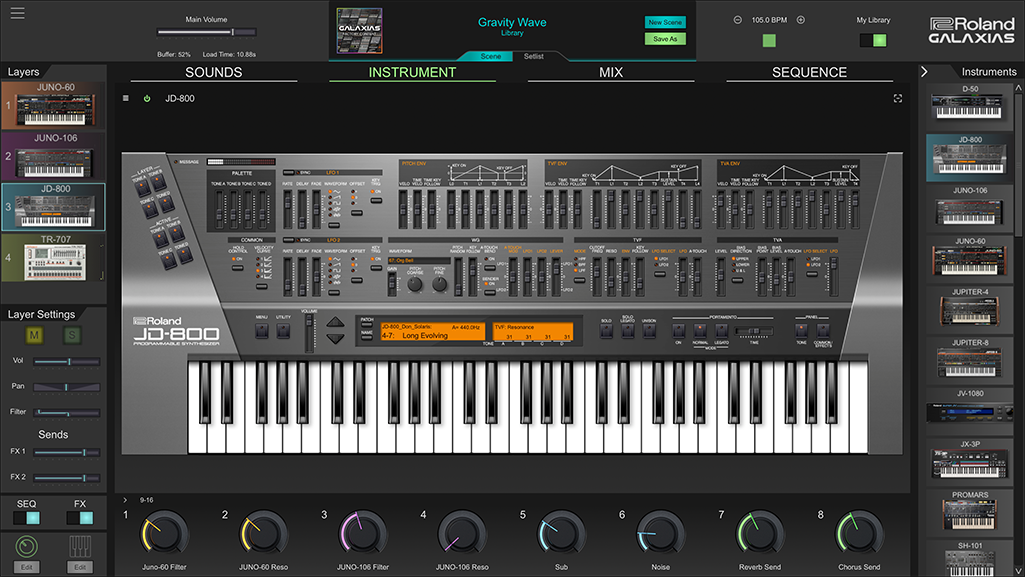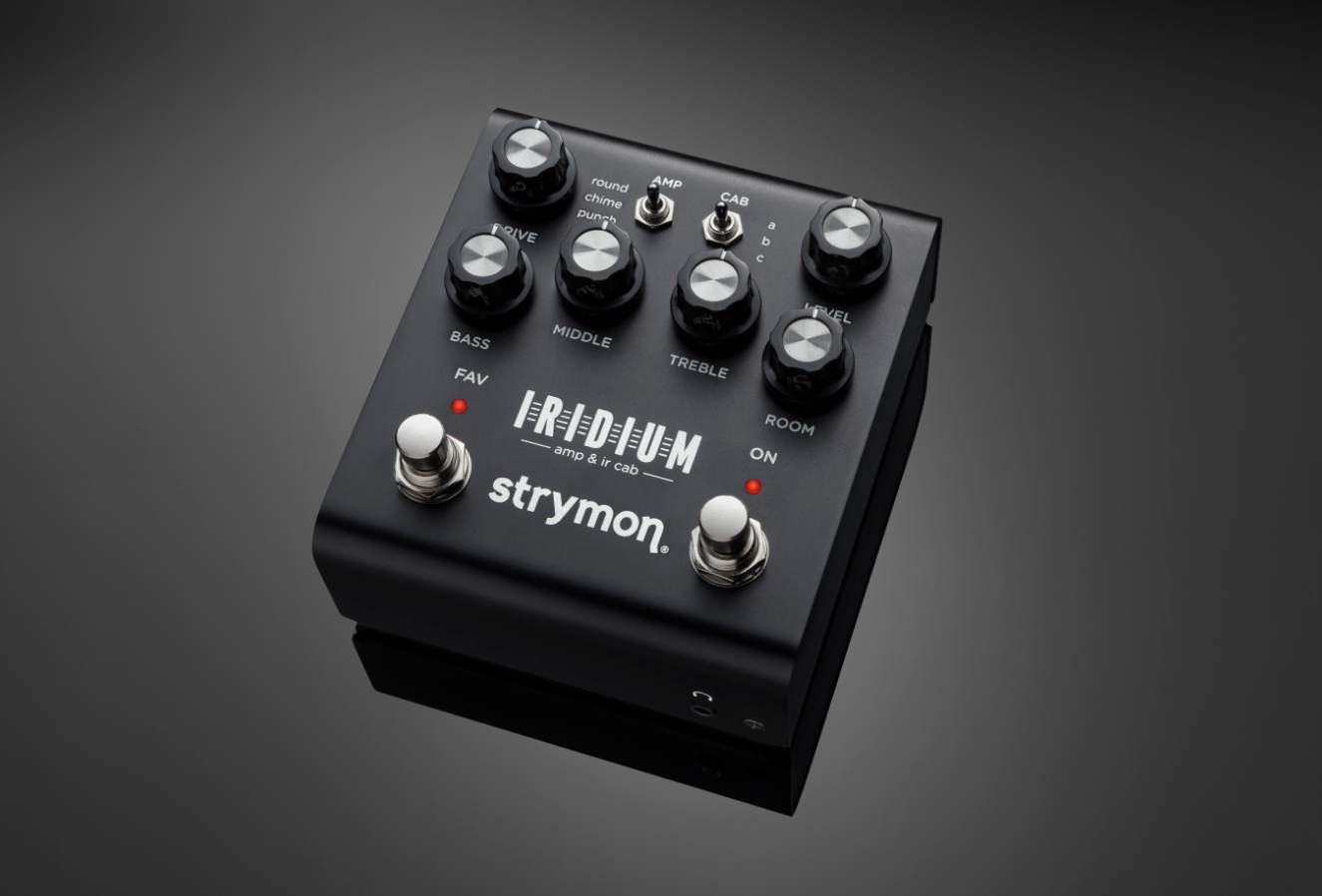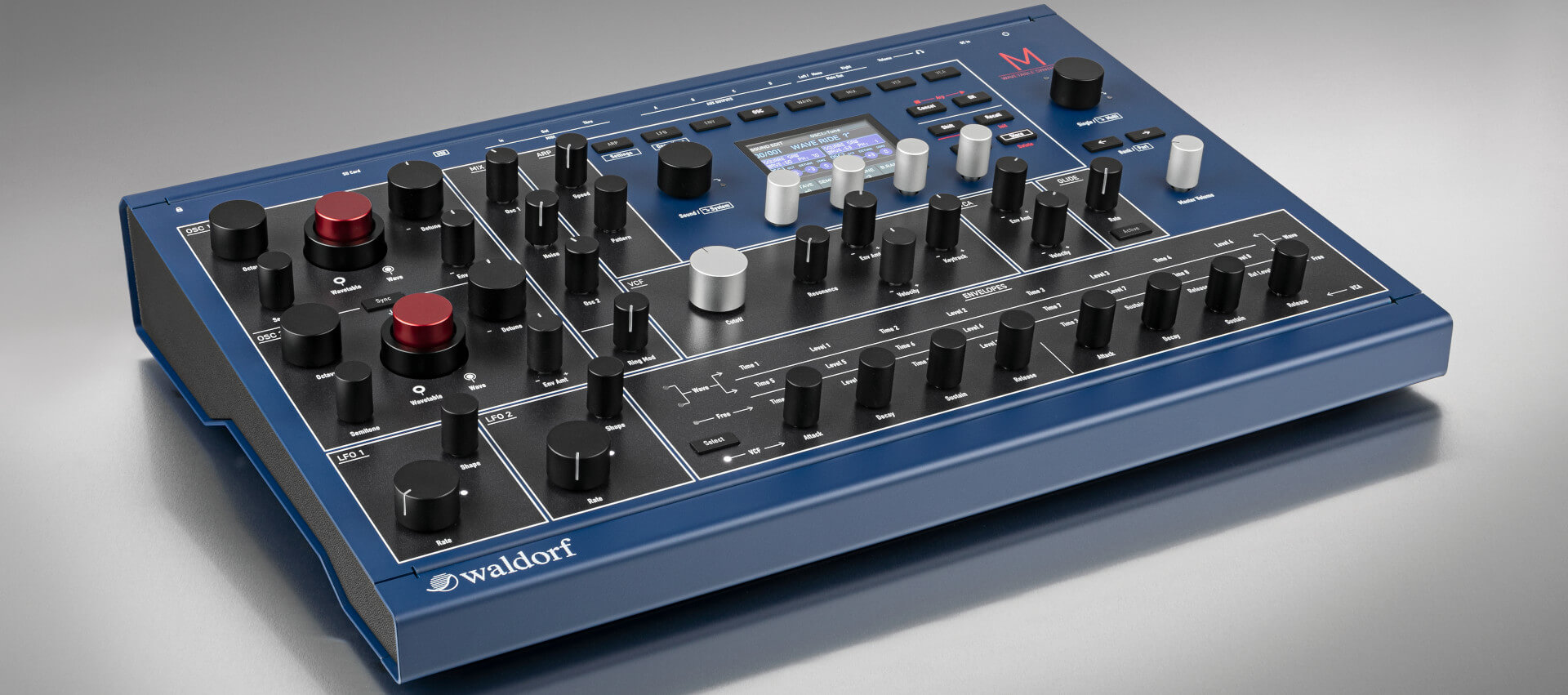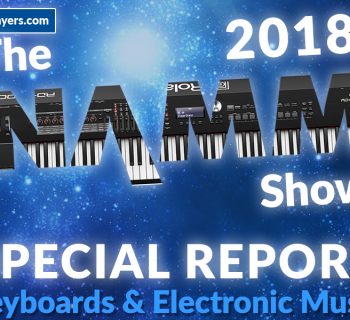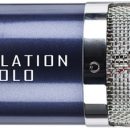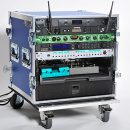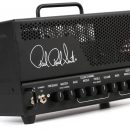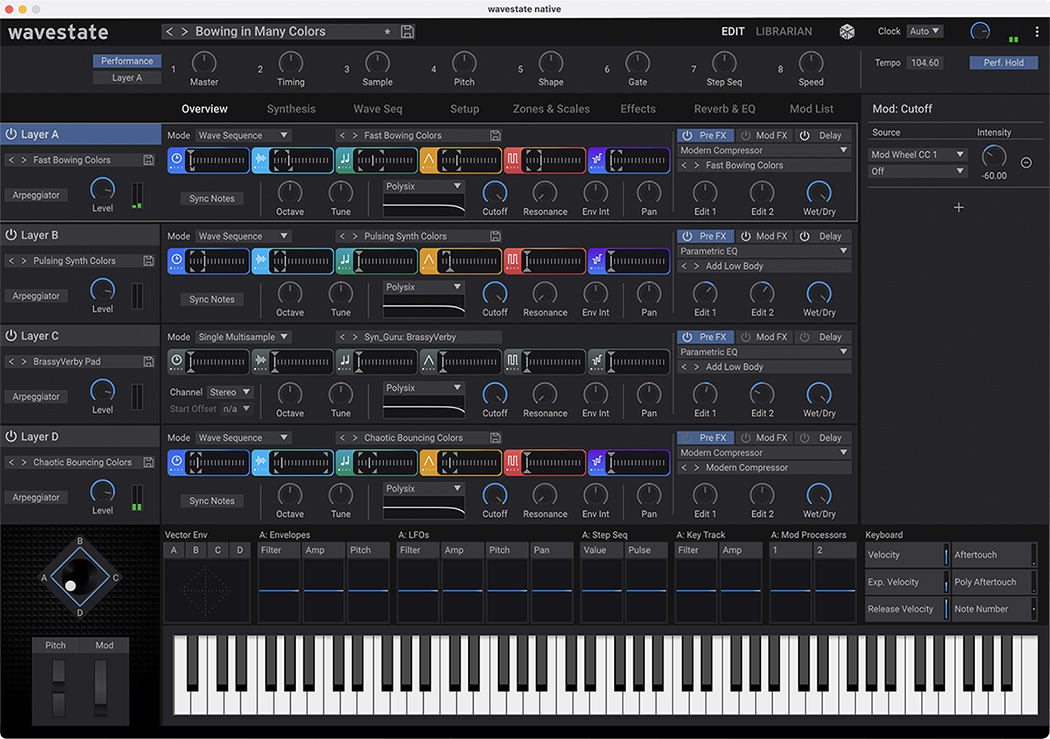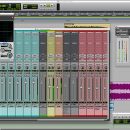Waldorf genuinely gets right to the heart of its Iridium synthesizer product line by introducing Iridium Core as small form factor variant
REMAGEN, GERMANY: having initially introduced its Iridium concept as a high-class synthesizer in a compact desktop form factor with welcomed added extras building upon the German developer’s demanding design standards set by the then-flagship Quantum keyboard’s futuristic functionality and advanced tonality to the wider world with widespread critical acclaim back in 2020 (followed by its semi-weighted polyphonic aftertouch pressure-providing Iridium Keyboard counterpart coming online in 2022), Waldorf Music is proud to introduce Iridium Core — genuinely getting right to the heart of its Iridium synthesizer product line as a small form factor variant featuring the full Iridium synth engine (itself implemented as the deepest available in a hardware instrument while being super-intuitive in use), this time providing 12-voice polyphony (including all the two layer setups) while retaining patch compatibility with all other Iridium variants, as well as Quantum and Quantum MK2 — as of October 10…
While weighing in at a comfortably carriable 2.2 kg, Iridium Core’s attractive all-metal enclosure merely measures 346 mm (W) x 200 mm (D) x 64 mm (H), making for a rugged road-ready creative companion that fits into laptop-sized bags and carry-on baggage while leaving enough space to also accommodate other devices for performance purposes. Put it this way: it is clearly worthy of its small form factor Iridium variant product description.
Duly providing 12-voice polyphony, Iridium Core features the full (MPE-compatible) Iridium synth engine, encompassing three oscillators — OSC 1, OSC 2, and OSC 3 — with five synthesis models — Wavetable (consisting of all the classics, as well as new tables of single-cycle waveforms), Multi-Sample & Granular (based on the simple idea that instead of playing back an entire sample, only short portions of the sample — so-called grains — are played), Waveform (standard oscillator model to create typical analogue synthesizer waveforms with cool features like morphing, hard-sync, and detuned unison), Resonator (creates sounds by using an initial exciter signal — mostly a short noise impulse or sample — that goes through a bandpass filter bank, where its resonating filters finally produce a ringing sine-like sound), and Kernel (effectively enabling one oscillator to become up to six sub-oscillators that can be interlinked through FM at audio rate and arranged in user-definable constellations) — that can be combined and mixed in two-layer setups together with dual digital FILTERS plus a digital FORMER section with various modes like Bit Crusher and Comb filters; furthermore, the 40-slot MOD (modulation) matrix — with five LFOS (Low-Frequency Oscillators), five ENVELOPES, and Komplex Modulator (defined as a complex LFO with two different curves that can be mixed together) — and an EFFECTS section (with five effects per layer that can be arranged in various parallel and serial topologies), as well as useful utilities like an Audio recorder, spectrum Analyzer and oscilloscope, and microtonal editor all see to it that the synth engine involved is the deepest available in a hardware instrument.
Iridium Core centrally features the same (1024 x 600) touch screen shared by its Iridium Desktop and Iridium Keyboard synthesizer siblings, with its encoders at the sides and the main encoder below — an intuitive and easy-to-use UI (User Interface) which, when operated in combination with the top row buttons, also allows all sound parameters and pages to be reached quickly and easily. Enabling exploration of a huge sonic universe of electronic sound in a way that helps keep creativity flowing is at the core of Iridium Core’s design ethos. It impressively includes over 1,700 factory presets and samples from an array of sound designers, driving anyone’s sonic wanderlust with much in the way of inspirational fuel for their musical endeavours. Equally, it shares the pad matrix — used to call up freely-programmable notes, chords, sequences, and arpeggios — found on Iridium Desktop, albeit in a reduced 2 x 4 arrangement accommodating its smaller form factor, while sharing six freely-programmable MACRO buttons — with which users can define functions from a wide range of features for additional performance control — with its Iridium Keyboard counterpart. As a unique design element, however, Iridium Core features four user-definable potentiometers that can be used on a patch or global basis (as well as additionally being able to be used as modulation sources). Speaking of which, Iridium Core is patch compatible with all other Iridium variants, as well as Quantum and Quantum MK2, and, as another member of the Waldorf Synthesis Platform OS (Operating System) — the common platform for all Iridium and Quantum variants — will, likewise, benefit from all future firmware updates.
Ultimately, Iridium Core connects smoothly with computers, controller keyboards, drum machines, modular synths, sequencers, and more besides to integrate into various live performance and studio setup scenarios. Situated on its rear are MIDI In and Out connections on TRS Mini Jacks adhering to Type A standard, while Iridium Core comes complete with two DIN MIDI adaptors. Additionally, there are also two precision CV (Control Voltage) inputs — In 1 and In 2 — alongside Eurorack-compatible CLOCK In and Out connections. Connectivity continues with the same I/O included on Iridium Core’s Iridium Desktop and Iridium Keyboard synthesizer siblings — namely, stereo AUDIO In, AUDIO Out, and headphone output with Volume potentiometer, as well as USB Computer and Controller ports for MIDI and storage, MicroSD Card slot, and DC In 12V / 3A (external) power.
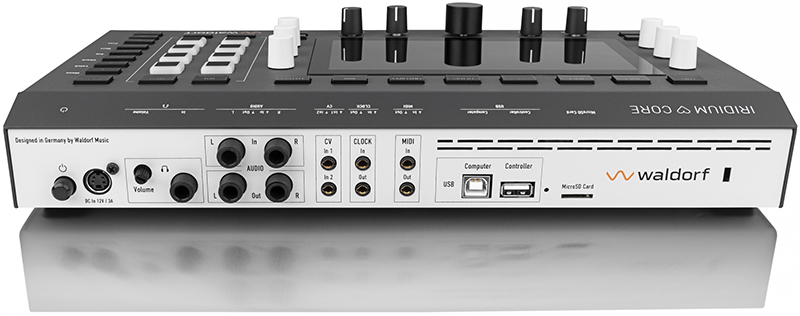
Proudly ending on a high note, Waldorf Music CTO Rolf Wöhrmann puts Iridium Core — genuinely getting right to the heart of its Iridium synthesizer product line — into its rightful perspective: “Many performing musicians have asked us for a more compact and portable form factor for the incredible Iridium sound engine to pack into their travel bags or allow already densely-packed studio environments to more easily accommodate another hardware instrument. Inspired by their feedback, we came up with the Iridium Core concept, and are very proud of the finished result. Indeed, it’s a thing of beauty, ready to be taken anywhere, and we can’t wait to hear all the music made with Iridium Core!”

